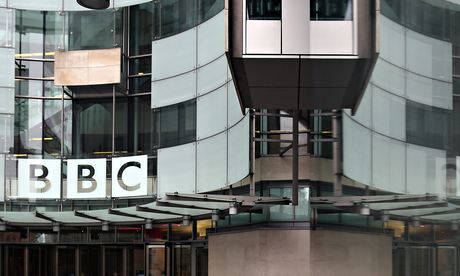
Asked in last week's Radio Times if she would like to see more "programmes that cater for bookworms", Kirsty Wark replied: "I have to be diplomatic because there's going to be a big announcement about BBC Arts". And when the big announcement came this week, in director general Tony Hall's presentation detailing "the biggest arts push for a generation", literary initiatives were indeed mentioned, but on inspection they don't amount to much that's new.
Noticeably they're largely short-lived projects, annuals not perennials: there's no sign of a topical books show or books documentary series. Dead writers will have to await their anniversaries to be feted (next up: a Dylan Thomas season), while the only hope for living ones who are not global celebrities lies in the multi-arts programmes, Imagine, The Culture Show and, until it was scrapped this week, Wark's The Review Show. Although the BBC is to replace Sky as the Hay festival's broadcast partner – focusing on authors, but tellingly in their second lives as performers.
Hall returned to the BBC after 12 years running the Royal Opera House and the performing arts are the big winners in his plans. (which can be seen as giving them at least equal status with, and potentially dethroning, the visual arts, long dominant in BBC priorities). His most eye-catching literary announcements involved treats on stages: more Hollow Crown Shakespeare history plays following those in 2012, Gemma Arterton (below) in a candlelit The Duchess of Malfi.
"BBC to offer more books coverage", the Bookseller dutifully enthused, but beyond the 10-day wonder of Hay it's hard to see what qualifies as "more" about books and writing, as opposed to play-scripts and acting: Radio 2, 3 and 4 will continue their existing coverage; Imagine will be profiling a novelist – Philip Roth – as it already regularly does; and Melvyn Bragg will once more be extolling favourite writers.
Nor is the promise of a remake of the 1969 landmark series Civilisation automatically a reason for bookworms to rejoice, since Kenneth Clark's grand tour was as notorious for privileging art and architecture in its definition of civilisation – hence only a few writers were squeezed in, mostly Renaissance geniuses and Romantics – as it was for Eurocentricity. If one of the BBC's plethora of art lovers is chosen as the new Clark, literature is liable to be marginalised again.
Hall's plans appear to leave BBC books-related output much as it is: flourishing if poorly coordinated on radio, but the Cinderella of the art-forms on television, suspected of being irremediably unsexy and so without a dedicated programme (unlike film or pop music), or documentary series of such frequency that they often overlap (unlike the visual arts), or a festival lasting eight weeks (unlike classical music). Try to name a BBC television books presenter who is on screen as often as, say, Andrew Graham-Dixon or Alastair Sooke, and you get an idea of the problem.

